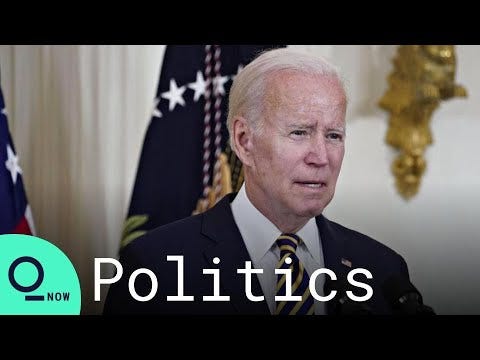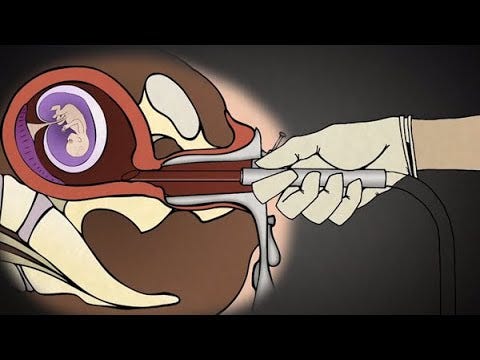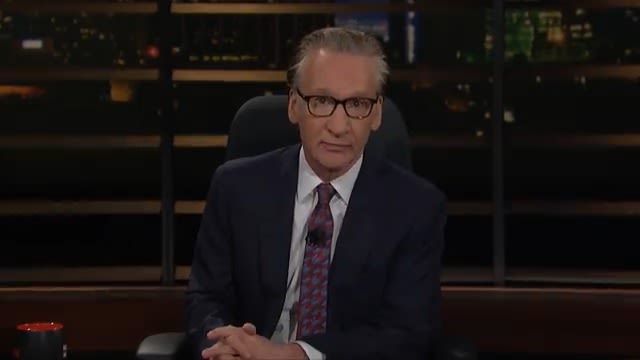By now I’m sure you’ve heard about a little thing called the Inflation Reduction Act. If you haven’t or if you simply don’t know much about it, here’s a helpful summary from USA Today:
House passes bold climate and health care bill
The $739 billion Inflation Reduction Act will raise taxes on certain corporations and is projected to cut the deficit by about $100 billion over the next decade
Why anything called the “Inflation Reduction Act” needs to happen at a time when we’re experiencing “zero inflation” is beyond me.
Still, I decided to take a deeper look into this bill to see exactly how our federal government plans on reducing inflation.
For the sake of clarity, I have not scoured through the actual bill (H.R. 5376) because they really make these things impossible to finish in a reasonable amount of time. So I found an NPR article that explained it rather simply. I did, however, find some grave flaws regarding the bill’s logic and reasoning.
Here’s the first:
#1
“The White House says the roughly $700 billion package will address inflation in two key ways: by lowering energy and health care costs for families and by helping to bring down the deficit.”
I think we can all agree that the US deficit is absurdly high as it currently sits at about $28 trillion dollars. So yeah, I’m sure we can all get behind decreasing that number. But how is the task of lowering a deficit achieved exactly?
Well, think about it in terms of your own personal budget. If you were even just $2,800 in debt, how would you go about lowering it? You’d probably reduce your superfluous spending habits and realize that your Texas Roadhouse addiction is severely hindering your ability to pay back your debts. Another thing you could do is increase the amount of money you make by either picking up a second job, a side hustle, or even by begging on the busiest intersection of your city.
And that’s how our government could also go about reducing the debt. They could halt spending and they could increase the amount of money they make.
The only issue is: the government doesn’t make more money by selling homegrown vegetables on the weekends at the local farmer’s market. They make it by increasing taxes.
#2
"It will generally work in the right direction and help the Federal Reserve, which has the primary responsibility for getting a hold of inflation.”
-Shai Akabas, the director of economic policy at the Bipartisan Policy Center
Funny, isn’t it? The entity “responsible for getting a hold of inflation” is also responsible for creating inflation in the first place.
In case you were unaware, the Federal Reserve printed the most money it ever has at one time in centuries during the peak of the Covid pandemic. Where else did you think all your “stimmy” money came from? The Fed just printed more dollars, thus inflating the currency.
So yeah. It just all seems like lunacy to me.
#3
“There are three main ways the bill targets rising prices … [f]irst, it plans to reduce the federal deficit, which is the difference between how much the U.S. government spends and how much it makes in taxes and revenue. When there's less money floating in the economy, there tends to be less demand and fewer price hikes.”
I know I went over this previously, but what bugs me in particular here is that as of yet the federal government has made no promises and has laid out a total of zero plans to reduce their own spending. Yet, we’re supposed to be okay with “less money floating in the economy,” meaning less money that we have to spend?
How is that fair?
#4
“The bill also plans to bring in more than $300 billion in new revenue, Democrats say, by imposing a 15% minimum tax on corporations making over $1 billion and through a new excise tax on corporate stock buybacks”
Again, if you ever see the phrase “the government’s plan to bring in new revenue,” it means only one thing: they’re collecting more taxes. Additionally, the hyperlink in the above excerpt brings you to a Democrat-published PDF, the initial sentence of which reads:
“The Inflation Reduction Act of 2022 will make a historic down payment on deficit reduction to fight inflation, invest in domestic energy production and manufacturing, and reduce carbon emissions by roughly 40 percent
by 2030.”
Let’s break this down:
What is a down payment? Assuming you’ve bought a car or a house before, you know that means. It means you’ve put some money towards your new item or investment, but you still owe a majority of the price tag to a lien holder that you pay back over time (typically with interest).
How is a deficit reduced? To reiterate: by reducing spending and by increasing income.
In conclusion: the government plans to reduce the federal deficit by… spending more money. So, if they’re gonna spend more rather than less, then they must be increasing their income by a large margin to achieve all this by 2030. And how does a government increase it’s income? Through you. All those days you pulled doubles just to make ends meet, all those promotions and pay raises that you busted your ass to earn. All of it goes to these shady bastards in Washington. All. Of. It.
Oh, and just for fun, ask the Dutch farmers how well this whole fucking “reduction of carbon emissions” thing is going for them.
#5
"If a company is less profitable and less able to spend money on labor and less able to pay higher wages, then that will be felt by individuals throughout the economy.”
I will extend kudos to this NPR columnist; the lefty types aren’t usually so forthcoming or savvy when it comes to business finance. It’s a much more popular mindset to think that the rich need to “pay their fair share.”
But this one seems to get it. Often times, when a company is doing well financially, they’ll reinvest in their company. They do this by expanding the company and creating more jobs, allowing more opportunities for bonuses and overtime, etc.
So, like it or not, implementing a higher tax on wealthy employers has far-reaching effects.
#6
“The Internal Revenue Service will get a boost in funding, particularly to improve its customer service and tax enforcement … investment could help alleviate some of the challenges with long response times or getting tax refunds processed. It could also increase collection of taxes that are currently owed but go unpaid.”
I actually find this quote to be hilarious. Of course the IRS only needs more money to “improve its customer service”! Too many customers have left dissatisfied already…
Also, it bothers me on a spiritual level to see the phrases “customer service” and “tax enforcement” together in the same sentence. For one thing, no one whose paying taxes is a fucking “customer.” There is no desirable product that the IRS sells and that people are out here buying.
To be fair, I know what they mean by “customer service” but it still pisses me off. Yeah, I’m sure some people have experienced difficulty in the past trying to get a hold of real IRS agents over the phone. They probably get redirected in circles by automatons and I fucking get it. I, too, live in the future and have also cussed out robots over the phone.
Still, we are not “customers.” And the more we bastardize language in ways that benefit the powerful, the closer we come to total oppression.
I would also like to know just how far the IRS plans to go in “increasing collection of taxes that are currently owed but go unpaid.”
Sure, most people will assume it refers to tax-evading billionaires. But how can we expect the IRS to stop there when the Inflation Reduction Act allows for the agency to hire a number of employees that outnumbers American billionaires one hundredfold?

Some folks have other predictions:

And none of these are terrible assumptions considering that the federal government just approved a whopping $739 billion expenditure for themselves. So, somebody’s gotta fund it. I just hope people remember all of this come November 2024.


Still, I’m sure there will be those who think I’m just overreacting or criticize me for not giving a balanced view on this matter. After all, other parts of the bill aren’t bad. It’s there to help the environment and such.
Ok. Sure.
But why the fuck do we need IRS agents carrying fucking firearms and “willing to use deadly force, if necessary”? Does a fucking harmless climate and health care bill really require such strict tax enforcement?
What the fuck does this sound like to you? Because, to me, this sounds like a government threatening its citizenry.
And, yeah, I guess some people could argue that perhaps these agents will find themselves in the thick of the hood, trying to ask some drug dealer to provide his proof of income in order to comply with federal regulations. This dealer and his friends might not take kindly to the IRS and their kind, potentially shooting someone in response.
Good thing they’ll only be going after the wealthiest of society, right? After all, no shoot outs are likely to occur in the Hamptons.
And finally, I came across this tweet:
Is there really no better use for our tax dollars? Do we really have to use our own money to pay for the agency responsible for collecting our money, and arming themselves in preparation to use deadly force if they incur any issues collecting our money?
Don’t get me wrong, I would really rather people weren’t taxed at all, but if we’re already at it, then we could at least do something noble or useful with all that money.
Instead, we’re using it to bolster the money-collecting agency that ensures the government’s account never dries up.
















